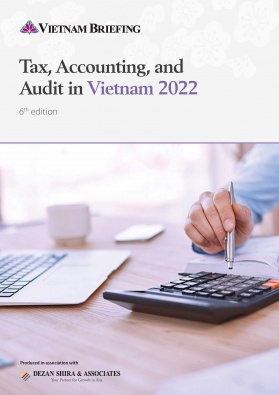Spain, Poland, Italy, Hungary Pharma Companies Gain Equal Access to Vietnam Market
A little talked about circular came into force earlier this month that could pay dividends for pharmaceutical companies in Spain, Poland, Italy and Hungary looking to enter the Vietnamese pharmaceuticals market.
Circular 08/2022/TT-BYT officially came into force last week, bringing Vietnam’s market entry requirements for pharmaceuticals from Spain, Poland, Italy, and Hungary, into line with their EU counterparts.
“The EU welcomes the removal by Vietnam, as of today, of discrimination against a number of EU Member States’ regulatory authorities for pharmaceutical products,” the Delegation of the European Union to Vietnam (DEUV) said in a statement.
An earlier circular in Vietnam had differentiated between the regulatory bodies of the member states of the European Union, attaching less significance to Spain, Poland, Italy and Hungary’s pharmaceutical regulators.According to the now obsolete circular, pharmaceutical companies from those four countries were designated ‘Stringent Regulatory Authorities’ (SRA) as opposed to the other 23 member states of the EU that were designated ‘Reference Regulatory Authorities’ (RRA).
In practice this meant it was easier and faster for the latter to register pharmaceutical products in Vietnam, and they were scored higher in government procurement processes. This gave them an advantage over the SRAs, according to the DEVU statement.
The new regulations, however, will group all 27 members of the European Union together in the eyes of Vietnam’s Ministry of Health.
“This positive result for EU industry and Vietnamese citizens shows the value of having a free trade agreement with Vietnam,” the DEVU went on to say.
Vietnam’s pharmaceuticals market and the EVFTA
The European-Vietnam Free Trade Agreement (EVFTA) came into force on August 1, 2020 with a number of changes to the pharmaceuticals sector.The agreement has already reduced a number of tariffs on pharmaceutical products with most of what is left to be eliminated by 2027.
European pharmaceutical companies also gained access to the Vietnamese public procurement markets in August after a two-year transition period. European companies will, over 15 years, gain greater access to public contracts as the percentage of contracts reserved for domestic companies is progressively reduced to 50 percent.
There are also provisions in the EVFTA that will allow EU pharmaceutical businesses to establish companies in Vietnam as opposed to partnering with domestically owned businesses. This will allow EU pharmaceutical companies greater control over their distribution chains.
Last year, the EU exported about EUR 1.5 billion worth of pharmaceutical products to Vietnam, which accounted for about 14 percent of the EU’s total exports to the Southeast Asian nation, according to the DEVU.
See also: Vietnam’s Pharmaceuticals Industry: A Comprehensive Guide for 2022
About Us
Vietnam Briefing is published by Asia Briefing, a subsidiary of Dezan Shira & Associates. We produce material for foreign investors throughout Eurasia, including ASEAN, China, India, Indonesia, Russia & the Silk Road. For editorial matters please contact us here and for a complimentary subscription to our products, please click here.
Dezan Shira & Associates provide business intelligence, due diligence, legal, tax and advisory services throughout the Vietnam and the Asian region. We maintain offices in Hanoi and Ho Chi Minh City, as well as throughout China, South-East Asia, India, and Russia. For assistance with investments into Vietnam please contact us at vietnam@dezshira.com or visit us at www.dezshira.com
- Previous Article How are Foreign Investors Responding to Vietnam’s New Data Localization Regulation
- Next Article Permanent Court of Arbitration Opens New Office in Hanoi

































